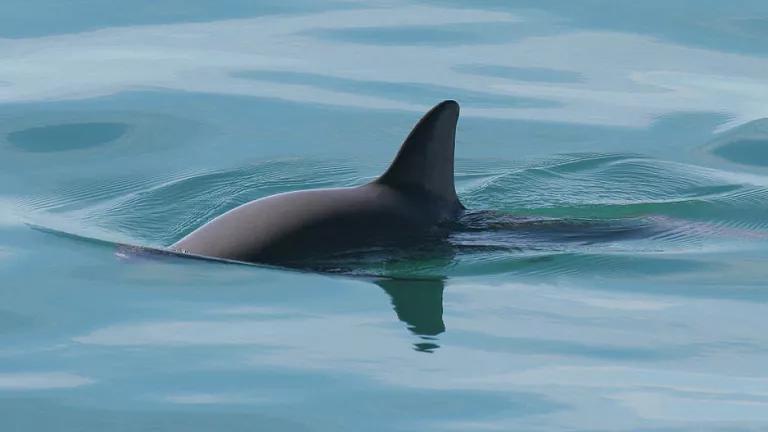Vanishing Vaquitas
A report finds that the world’s smallest cetacean has reached a dangerous new low.

The world’s smallest porpoise is in big trouble. A report released today finds that the vaquita—which has likely been declining since the 1950s and is already considered the most endangered porpoise species in the world—is faring even worse in the waters off western Mexico than previously thought.
The International Committee for the Recovery of the Vaquita records the species' echolocations with devices dropped into their habitat. Based on how much (or how little) they hear over time, the scientists estimate changes in the population. From 2011 to 2013, the committee suspected that vaquita numbers were dropping at an average rate of 18.5 percent per year—not an encouraging statistic by any means. With their latest findings, however, they've upped that average significantly—to 31 percent.
And for the latest year studied (between 2013 and 2014), the new data show the drop-off climbed to an alarming 42 percent. Scientists will get a better idea of how many individuals remain when they finish their on-the-water survey this fall, but the animal's total population may be as low as 50 or fewer.
“We’re truly at the brink of losing the vaquita forever,” says Zak Smith, an attorney with the NRDC’s marine mammal protection project (disclosure).
Vaquitas swim only in the northern stretches of the Gulf of California, where their main threat is gillnet fishing. These vertical nets are the gear of choice for catching shrimp and totoaba, a critically endangered fish. Unfortunately, vaquitas swim into these nets, become tangled, and drown. Fishing for totoabas is against the law, but that hasn’t stopped poachers. The fish’s swim bladder is an increasingly popular ingredient in traditional Asian medicine, and, according to the Center for Biological Diversity, a single bladder can fetch $14,000 on the black market.
Mexico has taken a handful of steps over the years to keep vaquitas from becoming bycatch. Most recently, in April, the government announced a two-year moratorium on gillnets in the Gulf of California and pledged to deploy its navy to crack down on illegal totoaba fishing. Still, conservationists have criticized the lack of enforcement, and in light of the distressing new numbers, it’s clear that what’s been done so far to help the vaquita isn’t working fast enough to save it from extinction.
“While Mexico should be commended for its recent protective measures, it’s not enough—the ban on gillnet fishing must be permanent to allow the vaquita a chance to recover,” said Sarah Uhlemann, a senior attorney for the Center for Biological Diversity. “There simply aren’t enough vaquita left for half-hearted action.”
This article was originally published on onEarth, which is no longer in publication. onEarth was founded in 1979 as the Amicus Journal, an independent magazine of thought and opinion on the environment. All opinions expressed are those of the authors and do not necessarily reflect the policies or positions of NRDC. This article is available for online republication by news media outlets or nonprofits under these conditions: The writer(s) must be credited with a byline; you must note prominently that the article was originally published by NRDC.org and link to the original; the article cannot be edited (beyond simple things such grammar); you can’t resell the article in any form or grant republishing rights to other outlets; you can’t republish our material wholesale or automatically—you need to select articles individually; you can’t republish the photos or graphics on our site without specific permission; you should drop us a note to let us know when you’ve used one of our articles.

How to Become a Community Scientist
Biodiversity 101
How to Start Saving the Planet in 100 Days: the Joe Biden Edition